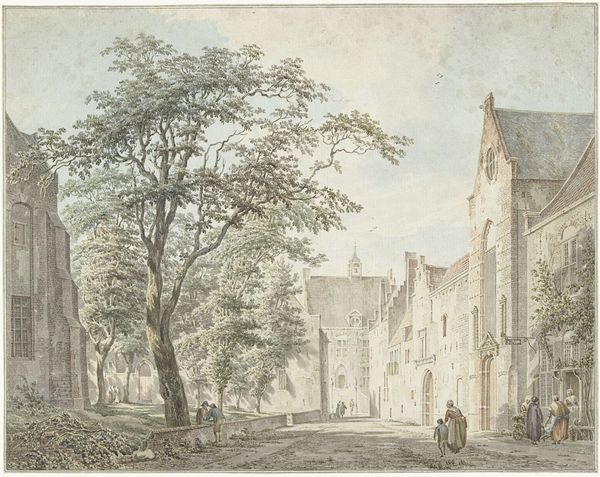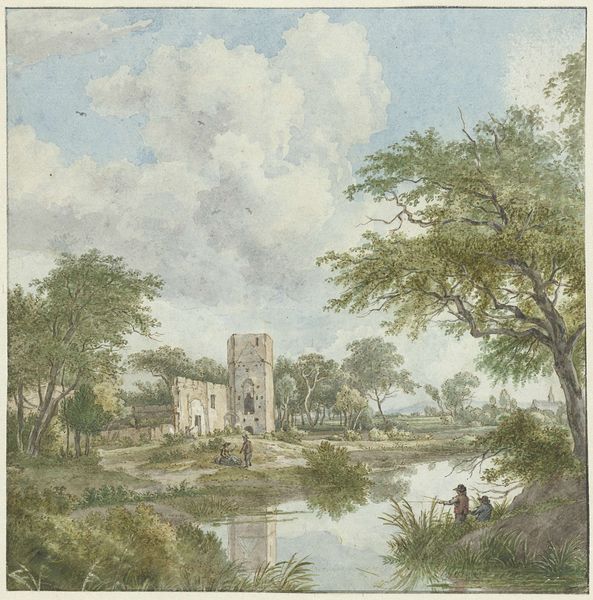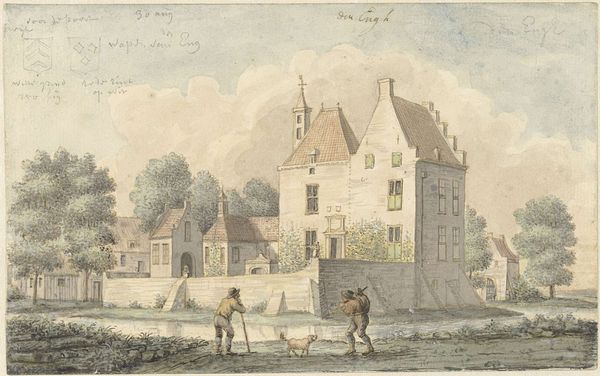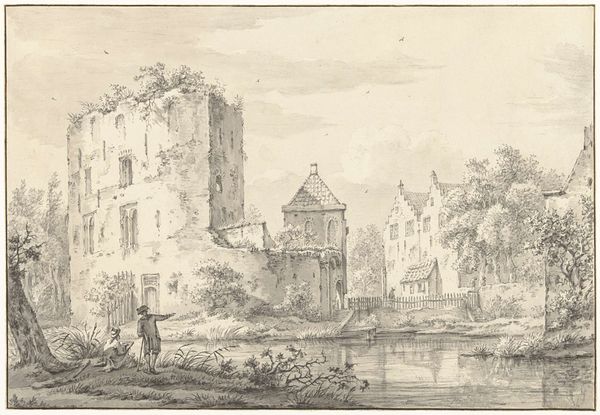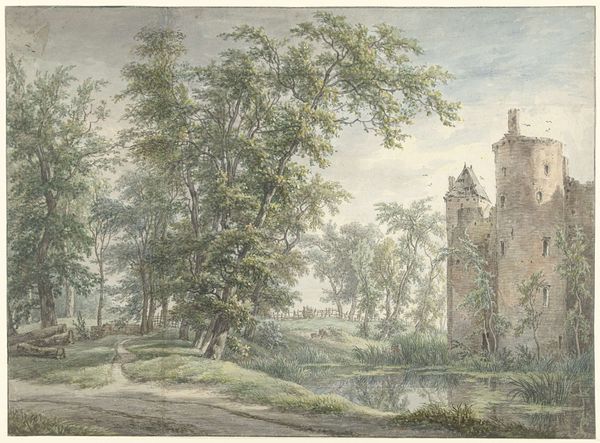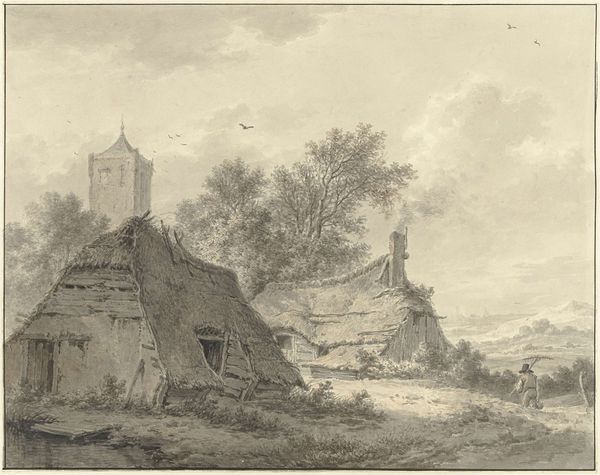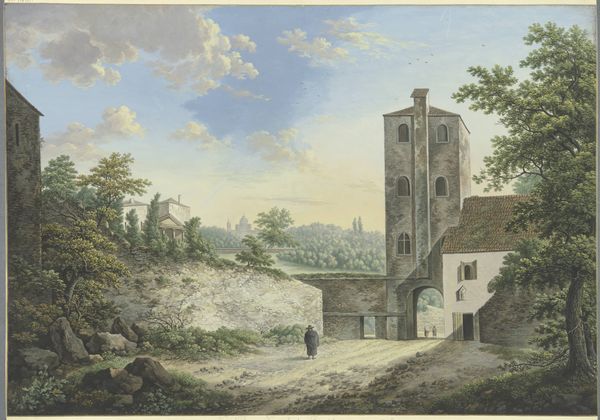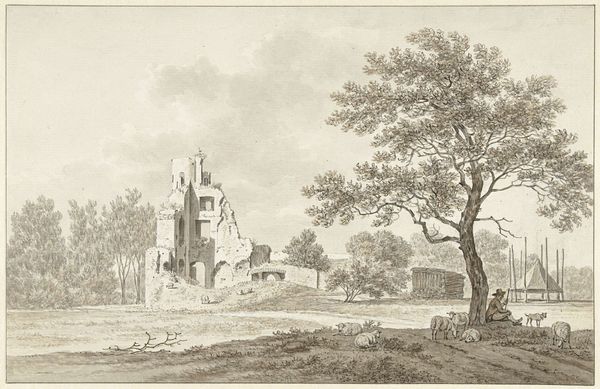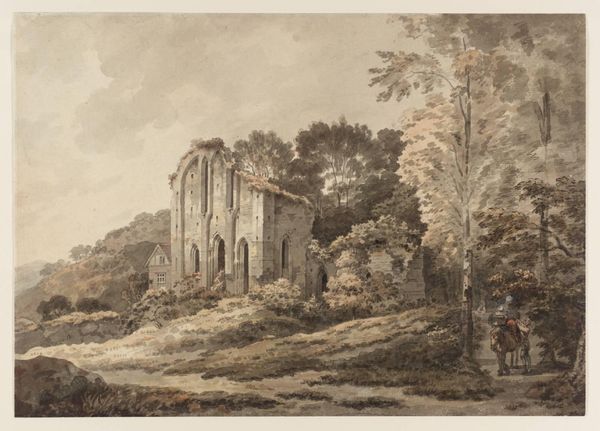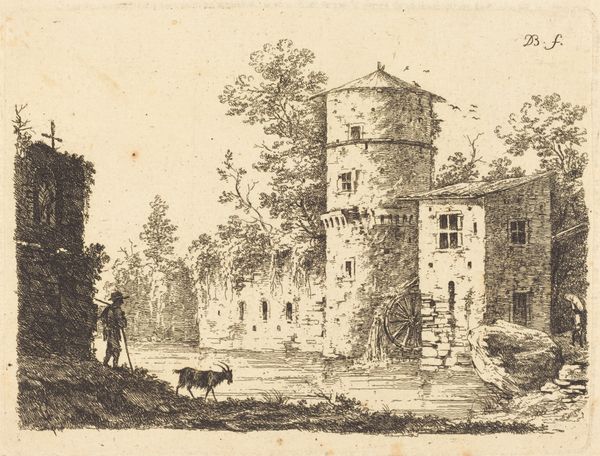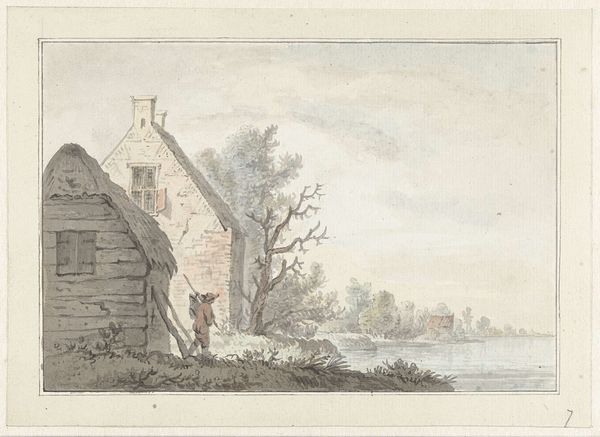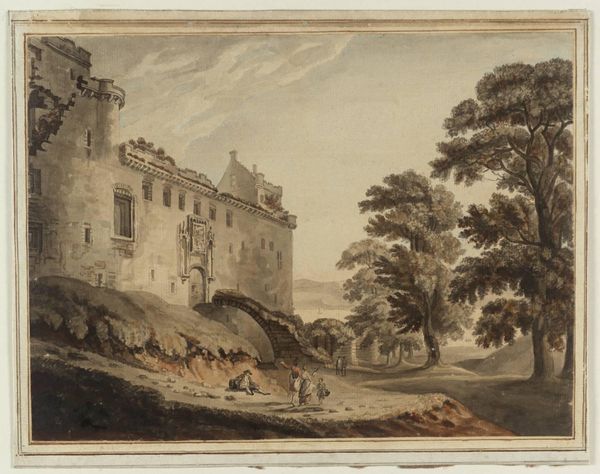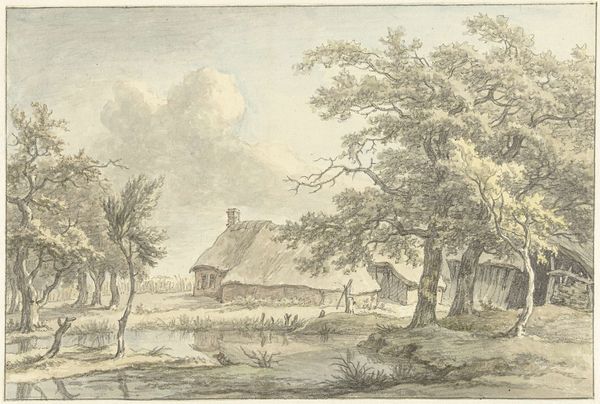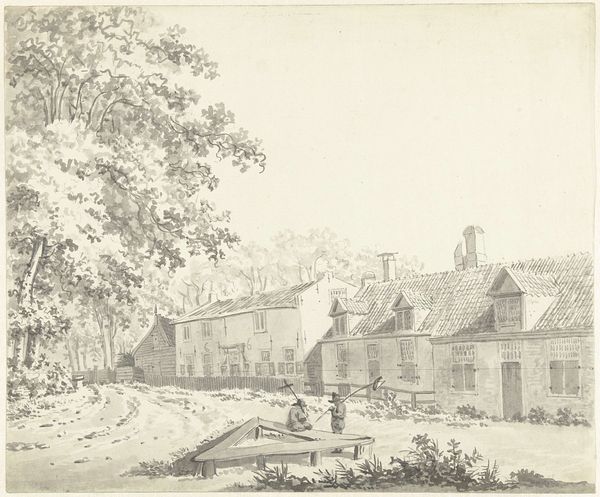
painting, watercolor, architecture
#
dutch-golden-age
#
painting
#
landscape
#
watercolor
#
watercolor
#
architecture
#
realism
Dimensions: height 413 mm, width 507 mm
Copyright: Rijks Museum: Open Domain
Editor: Here we have "Kasteel IJzendoorn in de Betuwe," a watercolor painting by Jacob van Strij, dating sometime between 1766 and 1815. I’m struck by the way the artist captured the subtle gradations of light on the aging stonework of the castle. What are your thoughts when you look at this piece? Curator: Well, immediately I think about the romanticism of ruins that was circulating at the time. Though not strictly a ruin, the castle possesses a sense of age and perhaps decline. It makes me consider the role these stately homes played – or *had* played – in Dutch society, and how their representation in art reflected shifting social power. Who was commissioning these works and what messages were they hoping to convey through images of grand, but slightly worn, architecture? Editor: So you're saying it’s not just about the beauty of the building itself? Curator: Precisely. Think about the relationship between the figures in the foreground, dwarfed by the castle, and the institution it represents. Does the artist subtly critique or reinforce a particular social hierarchy? Also, note the use of watercolor – a medium often associated with documentation and preliminary sketches. What does it mean to use such a medium to portray what was, for its time, a significant architectural subject? Editor: That’s interesting, because it makes the castle seem almost temporary, like a fleeting image rather than something permanent. Curator: Exactly! And consider the art market at the time. What did these depictions of landscape and architecture mean for the rising middle class acquiring art? It wasn't just about ownership, it was also about social status. Does it imply a certain aspirational outlook, perhaps? Editor: I hadn't considered the market aspect. Thanks, it gives me a totally different way to appreciate this watercolor. Curator: My pleasure. Thinking about art’s position within socio-political currents always adds a new dimension, doesn't it?
Comments
No comments
Be the first to comment and join the conversation on the ultimate creative platform.
